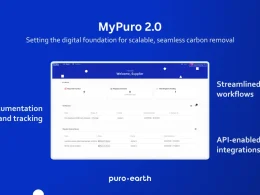According to a new analysis, private equity firms are using the retirement savings of US public sector workers to finance fossil fuel projects that release over a billion tons of greenhouse gas emissions annually.
Since 2010, these firms have invested more than $1 trillion into the energy sector, often acquiring both old and new fossil fuel projects. Researchers note that these operations often remain hidden from public scrutiny due to exemptions from many financial disclosure rules.
The report highlights that, in many cases, these investments are putting workers’ futures at risk by using their retirement savings to fund assets that contribute to climate damage. “Public sector workers’ money, through national, state, and retirement pensions, provides much of the capital for private equity firms’ energy investments, but there is limited disclosure to the pension fund managers that the deferred earnings of their beneficiaries have potential climate impacts,” the report states.
The research, conducted by Americans for Financial Reform Education Fund, Global Energy Monitor, and the Private Equity Stakeholder Project, analysed the holdings of 21 private equity firms managing a combined $6 trillion in assets. It found that these firms collectively fund projects responsible for emitting more than 1.17 billion tons of CO2 equivalent (tCO2e) annually.
The analysis focused on three key investment categories—upstream oil and gas operations, fossil gas terminals, and coal plants—meaning it does not fully capture the firms’ total emissions from energy investments. The findings were compiled into a scorecard that ranked each firm based on its fossil fuel exposure, transparency, and alignment with the global goal of limiting warming to 1.5°C above pre-industrial levels.
EIG received the lowest grade, an “F,” with its 23 fossil fuel companies, predominantly in upstream operations, contributing more than 255 million tons of tCO2e annually—the highest among its peers. Carlyle Group ranked as the second-largest emitter, with an estimated 214 million tons of tCO2e annually. Its fossil fuel holdings accounted for over three-quarters of its energy portfolio, earning it a “D” grade.
The report highlights a growing trend where private equity firms acquire older, higher-emitting assets as major oil and gas companies divest from them, and large banks increasingly see these assets as risky. Loopholes in regulations and limited disclosure requirements have allowed some of the most polluting assets to be acquired by relatively unknown investment firms, the report says.
















